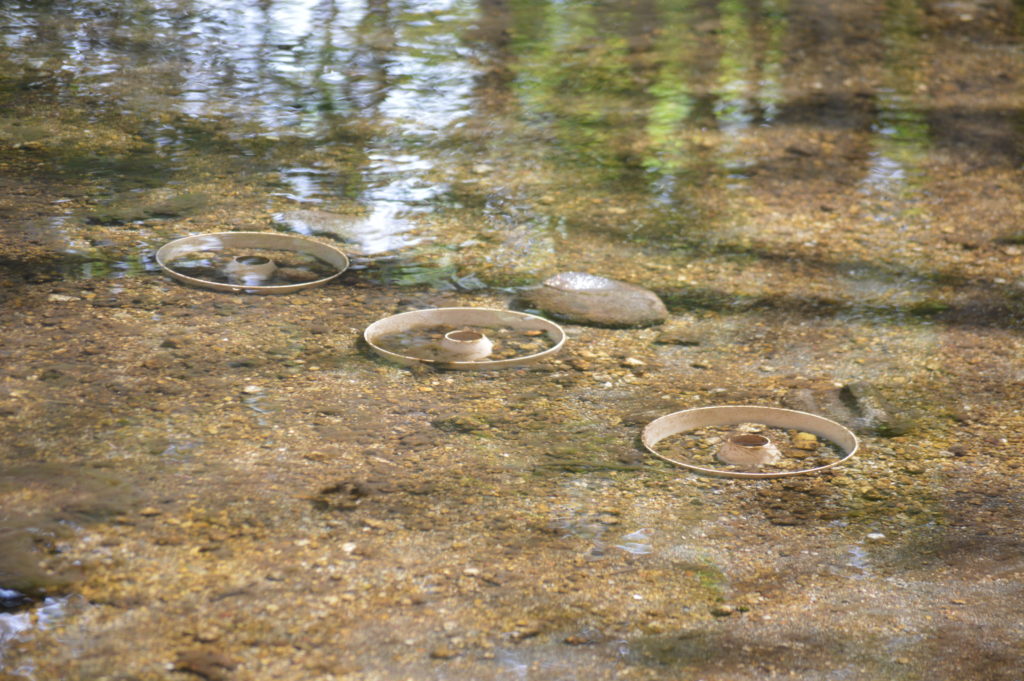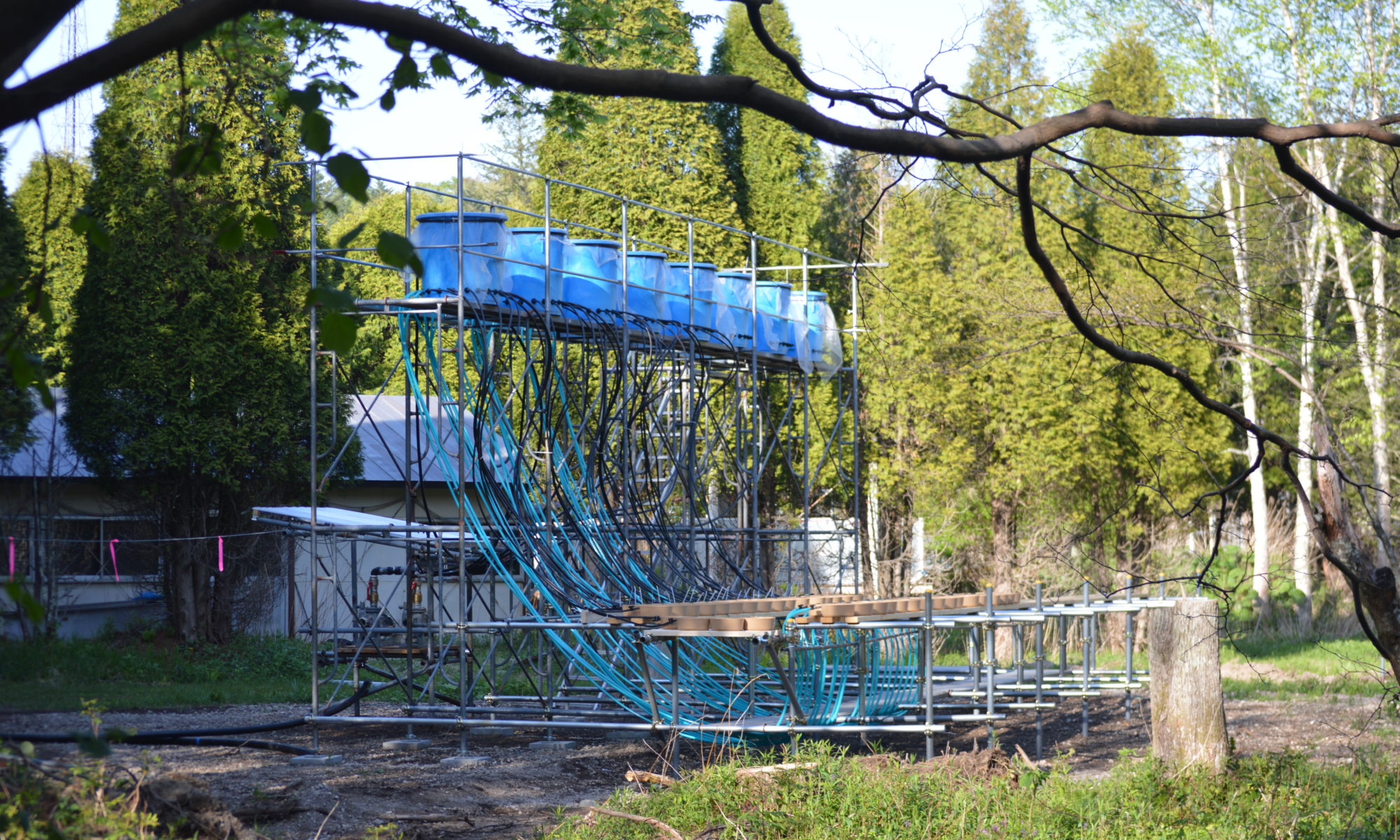- Separating signal from noise in acoustic biodiversity surveys - 17/11/2020
- Sustainable redevelopment: visions of a post-lockdown world - 29/05/2020
- Pedagogy in Portugal - 07/02/2020
This summer was my first attempt at a field experiment. As a typically desk-bound researcher, fieldwork presented some unique challenges. If you, like me, try out field research for the first time, you may find that your experience aligns quite well with the extended Kübler-Ross model of grief. So, here I present a satirical journey through the seven stages of fieldwork grief:
Stage 1: Shock & Denial
First, you may be shocked that your project was funded in the first place. How did the grant reviewers miss the underdeveloped methodology and glaringly obvious underestimation of how expensive your experiment will be to run? You tell yourself, ‘of course they’ll come to their senses and the funding body will realise what a mistake they’ve made.’ Don’t worry you’ll never have to actually do the research. This denial will likely leave you scrambling to pack a few days (or hours) before your bus/train/flight.
Stage 2: Pain & Guilt
You’re a few days into your fieldwork. Maybe you’re still constructing your experimental set-up. Perhaps you’re working long hours. You go to sleep feeling worn down and with a grinding pain in your lower back. Part of you hopes it’s fatal. Then you wouldn’t worry about the weeks and months of work ahead to get this damn project to work. Things go wrong daily and your collaborators don’t understand what you’re doing wrong. You feel so guilty that you tricked them into working with you. If only they’d realised them what a sham you are from the start they wouldn’t be disappointed with your monumental failure now.
Stage 3: Anger & Bargaining
One day you snap. Maybe it’s 4 weeks into your data collection and you drop your study species. Possibly someone asks you why you look so tired. Or maybe, like Beyoncé, you just woke up like this. You’re angry. Angry that you ever thought this project was possible. Angry that your boss let you run freely down this rabbit hole. Angry that your PhD even has a requirement for data chapters. What ever happened to the good old days when wild conjecture was good enough? Some days, you’re even angry at your study species. Those slimy fish. You’re pretty sure they’re deliberately messing with you. Vindictive bastards. You plead with yourself to find some way out of this. You cry down the phone to your boss hoping she’ll open her eyes to your semi-directional flailing and will call the whole thing off. She doesn’t.

Stage 4: Depression & Loneliness
Anger seems a distant memory. So does the real world. All you have now is your experiment and your misery. The two are basically synonymous at this point anyway. Everything is still going wrong on a daily basis, and honestly, you’re pretty sure nobody has ever been this unlucky. Virginia-based park ranger Roy Sullivan holds the record for being struck by lightning on seven separate occasions and you’re pretty sure even he would agree you’ve had it rough. You feel like nobody understands what you’re going through. How could they? Try explaining to your parents why you spent last Wednesday looking through the faecal matter of a subspecies of wombat. See how they’d like it. You’re pretty sure the isolation will make your study species look tasty sooner or later. Maybe you’ll eat one…
Stage 5: Upward Turn
Yesterday was a good day. The sun was out, and you didn’t completely ruin your daily data collection like you usually do. Today seems like a good day too. The experiment is happening. It’s going. Sure, everything’s on fire. But it’s more hot trash than the flames of hell. Regardless, you’re suspicious. Eagerly anticipating your next big failure.
Stage 6: Reconstruction & Working Through
Every day the trouble shooting gets easier. You’re either really in the swing of it or you’ve lowered your expectations far enough that a rabid squirrel could climb down from the trees and chomp on most of your equipment and study animals and you’d probably be fine with it. For the first time in a while though, you’re working through. Both on the experiment and also in your mental space. There’s light at the end of the tunnel, and while you’re not allowing yourself to look into it, you’re slowly reaching for your sunglasses.
Stage 7: Acceptance & Hope
You’ve come to an end. Your experiment wasn’t perfect. Far from it. But it’s over. At this stage, that’s better than perfect. Perfection is the enemy of good after all. Though, you’re still not sure what you have is good. But what you achieved was. Your ability to tough it out and make it to the finish line is worth more than your data ever could be. You’ve developed skills and maybe you collected some useful data along the way. Even if you haven’t, you achieved something. You start to dream of your return to normalcy. You dare to dream of data analysis, and publication, and fame and fortune.
Then you remember the review process… If you’ve made it this far and do manage to send a manuscript for review, prepare yourself for a whole new kind of grief.

